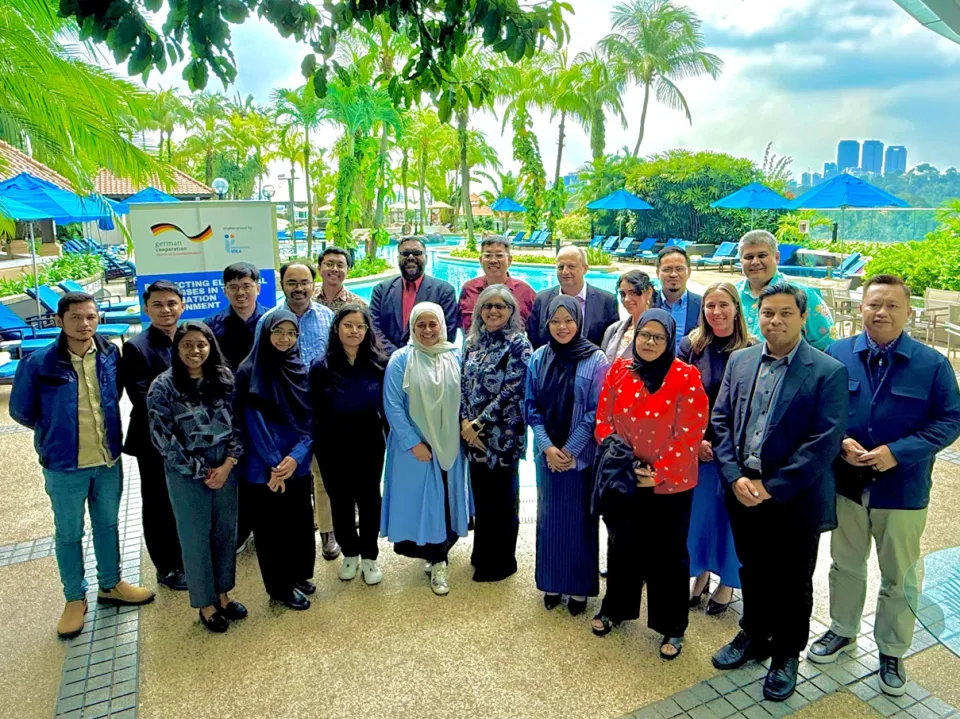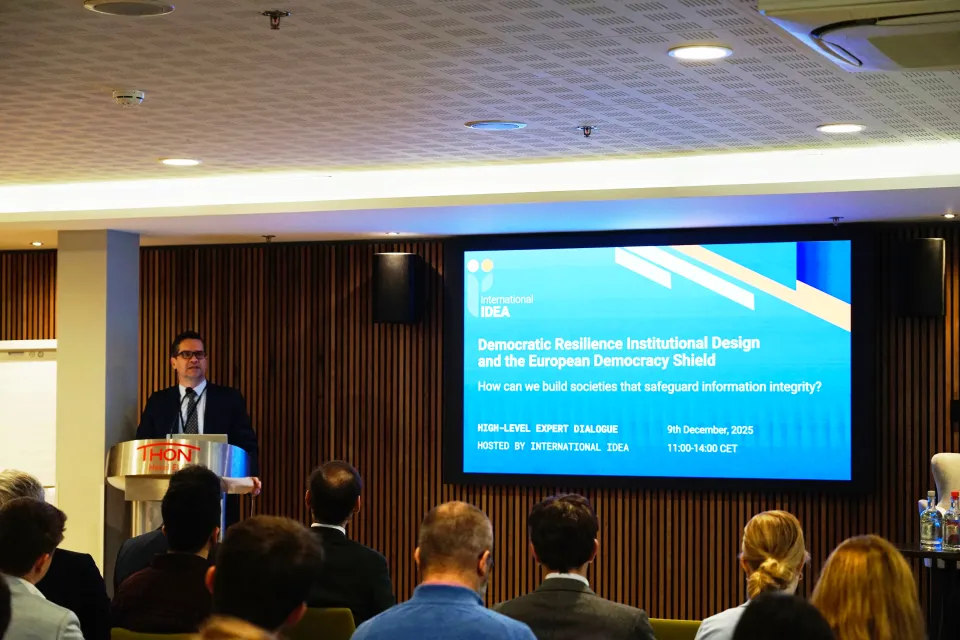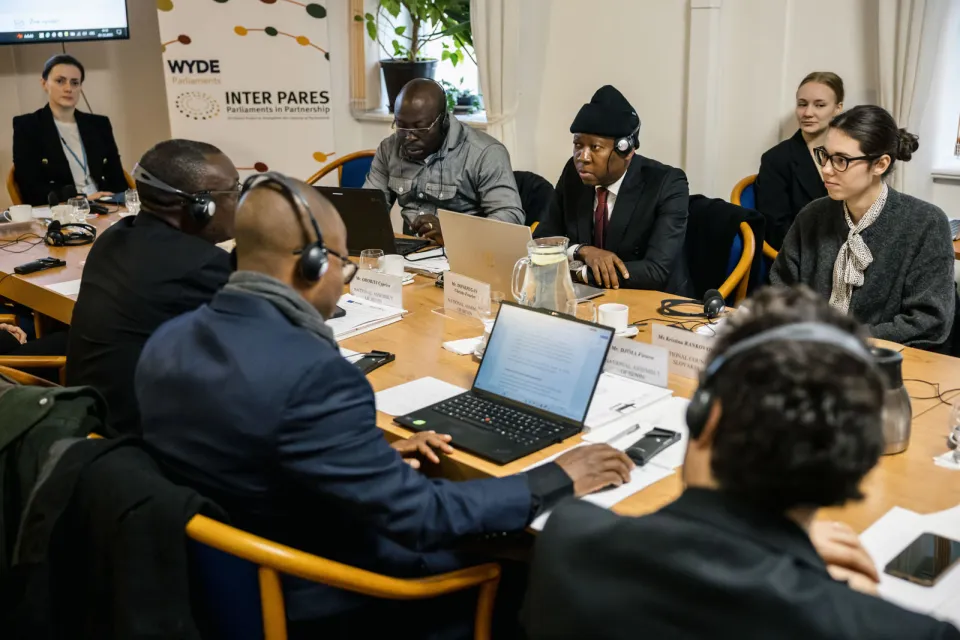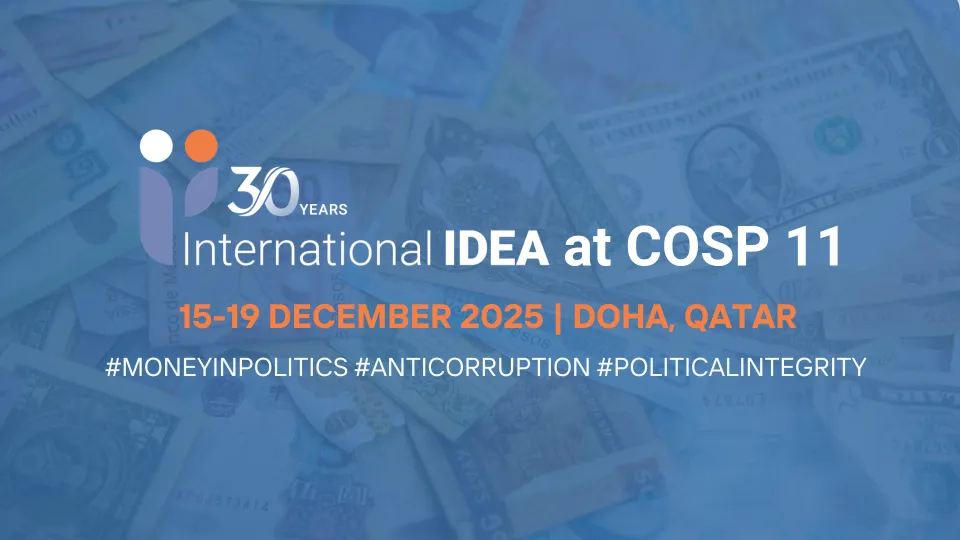Disclaimer: The views expressed in this analysis are the author’s and should in no way be construed to represent those of International IDEA, its Board and/or Council members.
The Southern Africa Development Community (SADC) is embarking on a hectic year as five of 14 member countries hold elections. By the end of the year more than 40 million voters will have had the chance to cast their vote in the regioni.
As summer temperatures fall in the southern hemisphere, the political climate will heat up as both South Africa and Malawi hold May elections. During the southern African springtime, another three countries will ask voters to express their opinions at the ballot box – Mozambique, Botswana and Namibia.
South Africa – parliamentary elections on 7 May
South Africa celebrates 20 years of democracy this year. The African National Congress(ANC) remains firmly entrenched but will be seriously tested as the voting population is growing increasingly dissatisfied with the party’s ability to deliver on previous promises, especially relating to combating economic inequality. Furthermore, two contentious issues may push traditional ANC voters elsewhereii. First, the government has been heavily criticized for its handling of the Marikana killings of August 2012, where police opened fire on striking mineworkers, killing 34 and injuring another 78 persons. The second issue relates to questions about the excessively high cost of security upgrades to President Zuma’s private residence – the so-called ‘Nkandla scandal’. South Africa is also gripped by service delivery strikes that occur in some parts of the country almost daily.
In addition to its long time competitor, the Democratic Alliance (DA), two new parties hoping to take their cuts of the cake are Dr Mamphele Rampele’s Agang (meaning “let us build”) and Julius Malema’s Economic Freedom Fighters (EFF). The opposition started off the year by shooting itself in the foot as the DA and Agang announced that Dr. Rampele would stand as DA’s presidential candidate in the 2014 elections, a decision that was reversed only days later. It is to be seen how this incident will impact on the national vote.
Malawi – presidential and parliamentary elections in May
In Malawi, the presidency of Joyce Banda will finally be put to the test at the ballot box.
Voted in as the vice president in 2009, Ms Banda fell out with former President Bingu wa Mutharika in a succession battle after which she was expelled from the ruling Democratic Progressive Party (DPP) and formed the People’s Party (PP) in 2011. However, due to the sudden death of President Mutharika in April 2012, Ms Banda took over the leadership of the country in line with constitutional provisions. As the first female leader in the SADC region, Ms Banda has enjoyed considerable recognition both domestically and internationally, in particular for restoring Malawi’s relations with the international community which had deteriorated under the former president. However, the ‘Cashgate scandal’ – whereby officials from the People’s Party have been accused from stealing billions of taxpayers’ kwachas at the government seat of Capital Hill – have severely tainted the incumbent and undermined her campaign against corruption.
Denis Kadima, Director of EISA, has described the electoral contest in Malawi as the least predictable in terms of outcomesiii. Altogether eleven political parties have fielded candidates for the presidential elections – three female and eight male candidates will be on the ballot. Amongst them are late Mutharika’s younger brother, Peter Mutharika who will stand for the DPP, as well as the son of former president Bakili Muluzi (1994-2004), Atupele Muluzi, who will run for his father’s old party, the United Democratic Front (UDF).
Botswana – parliamentary elections in October
The Botswana Democratic Party (BDP), credited for ending colonial rule, is to a considerable extent the ‘party of choice’ for the general population in Botswana. As the party has held power since independence in 1966 and over the last three generations of elections mustered above 50 per cent of the vote, continued BDP rule will be no surprise following the elections. This is also because the opposition parties have not been able to unite although it remains to be seen as to whether the recently formed umbrella United Democratic Movement (UDM) will hold. The economy and unemployment rate are contentious issue that will feature in the electoral campaign.
Mozambique – presidential and parliamentary elections on 15 October
Elections in Mozambique this year will take place against the background of renewed tensions between the former civil war adversaries, Frelimo and Renamo. Violence erupted on several occasions last year with many people reportedly killed and more having fled their homes. Based on its demand for equal representation in the institutions that are overseeing the electoral process, Renamo boycotted last year’s municipal elections. With the January negotiations and the new legislation rushed into place in February, in which the number of Electoral Commissioners rose from 13 to 17 and Renamo increased its own contingent to fouriv, the former rebel group is now back in the political ring and has confirmed their participation in the upcoming elections.
Frelimo has decided that the current Defence Minister Filipe Nyussi will succeed President Armando Guebuza who’s two constitutional terms in office is now coming to the end. However, the election of the successor was not without controversyv. In the second round of voting, former Prime Minister Luisa Diogo eventually lost to Nyussi by a large margin. However, it remains to be seen what damage has been made by this split in support. Frelimo is expected to win the elections.
Namibia – presidential and parliamentary elections in November
The South West Africa People's Organization (SWAPO) continues to play the dominant role in Namibian politics and this year’s elections are not likely to change the situation. Rather, the question is whether SWAPO will manage to gain the two-thirds majority which is required for amending the Constitution. President Hifikepunye Pohamba’s two terms in the office are up and his chosen successor will be Dr Hage Geingob. Geingob has held several cabinet positions, including Prime Minister and Minister of Trade. Although there may not be many policy changes ahead, he is known for his independent thought. Like Botswana, the opposition remains divided and struggles to play an important role in political life.
In the November elections Namibia may become the first country in Africa to introduce Electronic Voting Machines (EVM). For electoral practitioners engaged with electoral technology, it will be an important election to watch.
IDEA Africa Programme’s work in the field of electoral processes
International IDEA recognizes that Africa has made great strides over the past decades towards entrenching democratic practices. More and more countries are periodically organizing multi-party elections than at any other time in history. At the same time, democracy remains fragile and institutions of democracy remain weak.
International IDEA’s engagement in the continent operates at regional, sub-regional and country levels. Building on the 2007 Memorandum of Understanding with the African Union, IDEA has worked extensively to promote the implementation of the Joint Activity Plan (JAP) in a number of key areas, including elections, and therefore collaborated closely with the AU’s Department of Political Affairs and its dedicated Democracy and Electoral Assistance Unit. At sub-regional levels, IDEA is engaged with amongst others the Southern African Development Community’s Electoral Commissioners Forum (SADC ECF) and the Economic Community of West African States’ Network of Electoral Commissions (ECONEC).

Working with the ERM Tool in Kenya
Photo ©: Erik Asplund/IDEA
Finally, IDEA engages in country-specific initiatives such as, for example, in Kenya where IDEA supported the Independent Electoral and Boundaries Commission (IEBC) to promote peaceful elections through the application of IDEA’s Electoral Risk Management Tool for the 2013 elections. IDEA has also contributed to electoral reform processes in Tanzania and Namibia. More generally, IDEA has worked extensively with the development of capacities among Electoral Commissioners and staff of Electoral Management Bodies (EMBs). In 2011-2013, IDEA trained a total of 530 electoral officials from 46 countries and thereby reinforced their capacity to administer elections with integrity.
Closely linked to the area of electoral processes, IDEA also works with political parties in West Africa to develop inter-party dialogue mechanisms. The Institute was instrumental in the establishment of the Forum for West African Political Parties (FOWAPP) in 2013. Moreover, IDEA is also currently working with the National Constitutional Review Commission in South Sudan.
i Figure based on International IDEA’s Voter Turnout Database and the number of registered voters in the previous election for each country.
ii New Era: Election fever to hit SADC in 2014, 7 January 2014.
iii Mail and Guardian: SADC elections a high-risk affair, 31 January 2014.
iv eNews Channel Africa: Mozambique makes election reforms to end violence, 22 February 2014
v allAfrica: Mozambique: Filipe Nyussi to Be Frelimo Presidential Candidate, 1 March 2014



